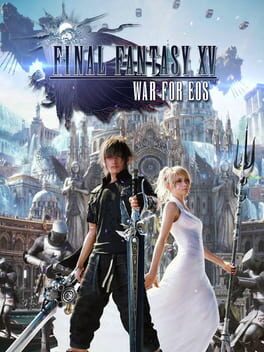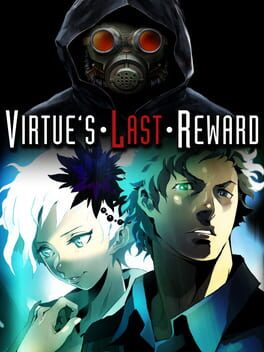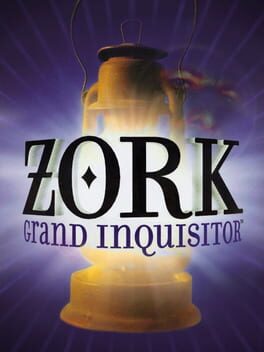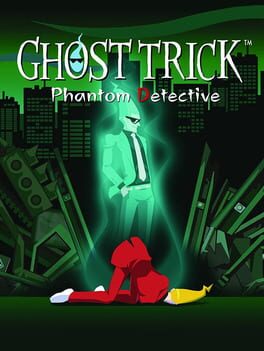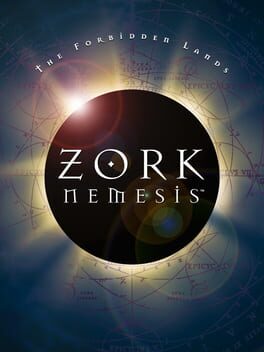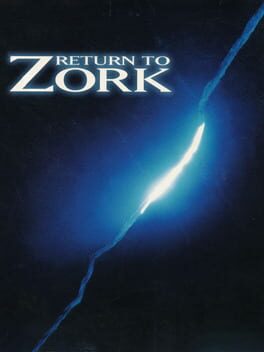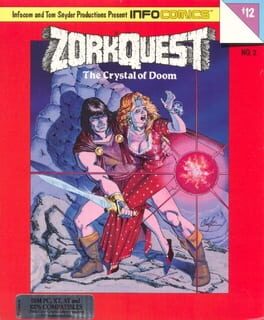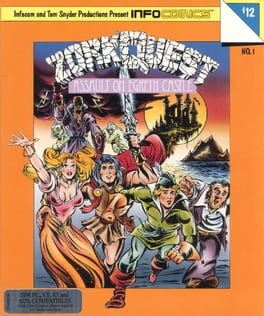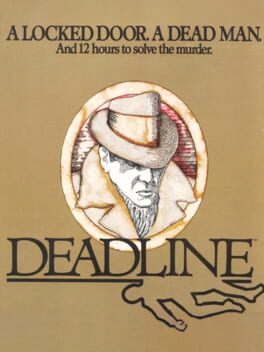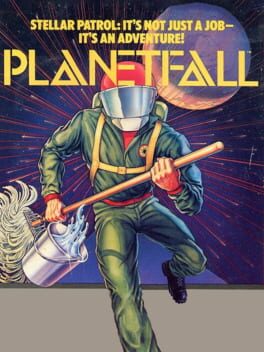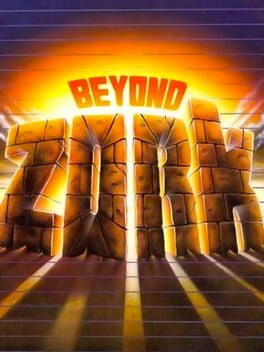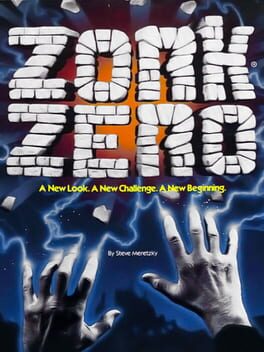DeviousJinjo
Exactly the same thing as the first one, by which I mean vile, loathsome and horrifying, though it doesn't waterboard you with quite as many full page ads and at least TRIES to pretend to have something to do with its license, only the dumbest of rubes would be fooled by this. War for Eos exists for exactly one reason, and that's to make all of the same dupes who bought into the first game purchase the same arbitrary currencies all over again in the name of winning some kind of imagined competition where the only prizes are poverty and misplaced pride. It is a reset back to zero so that they can pull the same con twice. It's an entry point so that new idiots can think they have a chance.
New Empire and War for Eos are not games. They do not feature gameplay, they feature tasks. SimCity is a game about management. It involves decisions which could have dire consequences if mishandled. These games are not about managing anything. A brainwashed lunatic might tell you that they're about managing timers, but that is a person who has fallen for the lie that anything about these games is competitive. There is no skill. You are competing against nothing. The only thing that happens if you ignore the timers is you feeling bad. The only way to lose the War for Eos is to start caring about it.
New Empire and War for Eos are not games. They do not feature gameplay, they feature tasks. SimCity is a game about management. It involves decisions which could have dire consequences if mishandled. These games are not about managing anything. A brainwashed lunatic might tell you that they're about managing timers, but that is a person who has fallen for the lie that anything about these games is competitive. There is no skill. You are competing against nothing. The only thing that happens if you ignore the timers is you feeling bad. The only way to lose the War for Eos is to start caring about it.
999 had few weaknesses. It was an intricately written story with strong thematic cohesion and great emotional payoffs, hampered only by a slight lack of QoL, a touch of pixel hunting BS, and some rather shallow puzzle design. While it doesn't quite manage to eradicate the pixel hunting (I still ran into at least three puzzles that stumped me for tens of minutes solely because I couldn't tell something in the room was supposed to be a separate, interactable object) it absolutely succeeds in attacking its other two targets.
If the puzzles in 999 are Kindergarten Babytime, VLR's puzzles are High School Physics. They're hard. I find this important and interesting for a number of reasons. Puzzles in video games, far more than any obstacle, are prone to feeling like bullshit. It is extremely easy to design a puzzle that sucks in a way that will absolutely infuriate the player or make them quit on the spot. Most puzzle games avoid such pitfalls by establishing very clear and consistent rules, and then making a hundred or so puzzles within that set of clearly defined rules. Sokoban, for example. Portal. Baba Is You. Even Ace Attorney. You know the type. Zero Escape is not doing this. Zero Escape is making escape rooms with unique themes and very few limits. In 999, this generally means collecting all of the things, and then using them in the only obvious possible way. If you instead had to use them in absurd ways, that would be in line with the traditional point-and-clicks like Monkey Island, but that style of puzzle design has never exactly risen above "questionable."
In VLR, each puzzle chamber is absolutely its own thing, with its own bespoke minigames, and gathering all of the information in a room will still leave you wondering how to use that information correctly. Wisely, the escape rooms contain multiple "chains" of puzzles, so the player only has to figure out one of them to start making some progress.
I am math intolerant. I have yet to convince my doctors that this is a real, bodily condition, but the fact remains that when asked to crunch numbers, my brain often decides to just shut down and wait for death instead. This renders me largely incompetent in the face of many of VLR's puzzles, but even in my despair, I was able to find my way through just about all of them without seeking help. Generally, when I looked something up, it was because I understood what to do but had lost all patience with actually making it happen and wanted to save myself the frustration. In every instance where I just could not figure something out and pixel hunting WASN'T to blame, I was just having a hard time interpreting the clues. While the game is hard, there are few if any cases where it requires a leap in logic that I would consider "unfair." This is VLR's most impressive quality. VLR is filled with Actually Good puzzles, and those are hard to make. They didn't make one good puzzle with a hundred variations, they made fifteen rooms with multiple good puzzles apiece.
The greatest puzzle of a Zero Escape game though, is of course the over-arching narrative meta-puzzle. Like in 999, players of VLR will explore the story repeatedly along multiple branching paths, looking for answers that will lead them toward the grand finale. Tragically in VLR, that finale isn't so grand. In fact I'd hesitate to call it a finale at all. VLR ends on one of the most jarring anti-climaxes I've ever seen, but it sure is a hell of a ride getting there. VLR always, always, ALWAYS has another twist, and almost all of them are wonderfully done. As in 999, no matter where in the decision tree a player decides to go first, they will learn something deeply interesting, and even more than in 999, the player is "supposed" to go everywhere. VLR, unlike the original and frankly correct version of 999, has a flowchart. The flowchart is good. I am a proud ally to all flowcharts in video games, and VLR's is no different. The game has been designed around the flowchart, and it has been designed well. This is all that I have to say about the flowchart at this time.
Unfortunately, in addition to being visually uglier than 999, the writing in VLR is sloppier too. I obviously will not be providing spoilers as examples, but this is something I must acknowledge. There are logic holes, bizarre characterization choices, the aforementioned extreme anti-climax, and story beats that just do not feel like they're handled in the best possible way. This does not however, diminish the heights that VLR reaches, with a non-linear narrative that is ALSO somehow excellently paced in addition to it's impressive puzzle repertoire. This prompts me to declare that VLR is at least as good as 999 and also that is possibly the most impressive puzzle game I have ever played, even despite its roughness.
If the puzzles in 999 are Kindergarten Babytime, VLR's puzzles are High School Physics. They're hard. I find this important and interesting for a number of reasons. Puzzles in video games, far more than any obstacle, are prone to feeling like bullshit. It is extremely easy to design a puzzle that sucks in a way that will absolutely infuriate the player or make them quit on the spot. Most puzzle games avoid such pitfalls by establishing very clear and consistent rules, and then making a hundred or so puzzles within that set of clearly defined rules. Sokoban, for example. Portal. Baba Is You. Even Ace Attorney. You know the type. Zero Escape is not doing this. Zero Escape is making escape rooms with unique themes and very few limits. In 999, this generally means collecting all of the things, and then using them in the only obvious possible way. If you instead had to use them in absurd ways, that would be in line with the traditional point-and-clicks like Monkey Island, but that style of puzzle design has never exactly risen above "questionable."
In VLR, each puzzle chamber is absolutely its own thing, with its own bespoke minigames, and gathering all of the information in a room will still leave you wondering how to use that information correctly. Wisely, the escape rooms contain multiple "chains" of puzzles, so the player only has to figure out one of them to start making some progress.
I am math intolerant. I have yet to convince my doctors that this is a real, bodily condition, but the fact remains that when asked to crunch numbers, my brain often decides to just shut down and wait for death instead. This renders me largely incompetent in the face of many of VLR's puzzles, but even in my despair, I was able to find my way through just about all of them without seeking help. Generally, when I looked something up, it was because I understood what to do but had lost all patience with actually making it happen and wanted to save myself the frustration. In every instance where I just could not figure something out and pixel hunting WASN'T to blame, I was just having a hard time interpreting the clues. While the game is hard, there are few if any cases where it requires a leap in logic that I would consider "unfair." This is VLR's most impressive quality. VLR is filled with Actually Good puzzles, and those are hard to make. They didn't make one good puzzle with a hundred variations, they made fifteen rooms with multiple good puzzles apiece.
The greatest puzzle of a Zero Escape game though, is of course the over-arching narrative meta-puzzle. Like in 999, players of VLR will explore the story repeatedly along multiple branching paths, looking for answers that will lead them toward the grand finale. Tragically in VLR, that finale isn't so grand. In fact I'd hesitate to call it a finale at all. VLR ends on one of the most jarring anti-climaxes I've ever seen, but it sure is a hell of a ride getting there. VLR always, always, ALWAYS has another twist, and almost all of them are wonderfully done. As in 999, no matter where in the decision tree a player decides to go first, they will learn something deeply interesting, and even more than in 999, the player is "supposed" to go everywhere. VLR, unlike the original and frankly correct version of 999, has a flowchart. The flowchart is good. I am a proud ally to all flowcharts in video games, and VLR's is no different. The game has been designed around the flowchart, and it has been designed well. This is all that I have to say about the flowchart at this time.
Unfortunately, in addition to being visually uglier than 999, the writing in VLR is sloppier too. I obviously will not be providing spoilers as examples, but this is something I must acknowledge. There are logic holes, bizarre characterization choices, the aforementioned extreme anti-climax, and story beats that just do not feel like they're handled in the best possible way. This does not however, diminish the heights that VLR reaches, with a non-linear narrative that is ALSO somehow excellently paced in addition to it's impressive puzzle repertoire. This prompts me to declare that VLR is at least as good as 999 and also that is possibly the most impressive puzzle game I have ever played, even despite its roughness.
For its last hurrah, Zork finally produces something familiar to most modern players as a "normal" point and click adventure game. Not a text adventure, not a text adventure with RPG elements, not a bizarrely mature Myst-like, and not the jarring, surrealist lunacy of Return to Zork. It also runs comfortably on modern systems, something that I hesitate to say about its three closest predecessors. As someone who grew up playing Humungous Entertainment games, I felt right at home with Grand Inquisitor. That's a good thing, because after playing this many puzzle games in such proximity, my stamina was wearing thin.
Grand Inquisitor is quite pretty, well voice acted, and has MOSTLY reasonable puzzles with no terribly egregious outliers. It has charming FMV, and it got a couple chuckles out of me, but its humor is definitely... different from the rest of the series. Grand Inquisitor always has SOME character or another chatting your ear off, and they're not spewing constant comedy gold. I can easily see some old-schoolers hating the endless prattle, while I'm sure others who can gel with the comedy will appreciate the quippy companionship.
In any case, Grand Inquisitor is cute, harmless, and competent. An acceptable end to an interesting lineage.
Grand Inquisitor is quite pretty, well voice acted, and has MOSTLY reasonable puzzles with no terribly egregious outliers. It has charming FMV, and it got a couple chuckles out of me, but its humor is definitely... different from the rest of the series. Grand Inquisitor always has SOME character or another chatting your ear off, and they're not spewing constant comedy gold. I can easily see some old-schoolers hating the endless prattle, while I'm sure others who can gel with the comedy will appreciate the quippy companionship.
In any case, Grand Inquisitor is cute, harmless, and competent. An acceptable end to an interesting lineage.
Ghost Trick is the best kind of puzzle game. It finds an intuitive, flexible, satisfying, and even narratively interesting concept to build on, and it elegantly expands on that concept along a smoothly tuned difficulty curve for exactly the right amount of time, all the way to its logical extreme... almost.
If there's any one thing I hold against Ghost Trick, it's the gameplay scenario it leaves on the table. Well... that and the stealth, but it very much feels as though the whole game's design is building toward a finale that never actually arrives. Aside from this one final step, Ghost Trick uses every part of the buffalo and has as much careful thought behind it as, for example, Starcraft 2's campaigns do. Unlike Starcraft 2 however, Ghost Trick has good writing and is something truly unique.
I don't think that Ghost Trick is flawless in how it unfolds its tale. There are some major plot and characterizational elements that aren't communicated as clearly as they probably should be near its end, but importantly, it nails its pacing all the way through. The drip-feed of information and new characters as the game progresses is enough to maintain interest the entire time.
When all is said and done, Ghost Trick is a feat of innovation, game design, and even storytelling, with only a few tiny hairs out of place.
If there's any one thing I hold against Ghost Trick, it's the gameplay scenario it leaves on the table. Well... that and the stealth, but it very much feels as though the whole game's design is building toward a finale that never actually arrives. Aside from this one final step, Ghost Trick uses every part of the buffalo and has as much careful thought behind it as, for example, Starcraft 2's campaigns do. Unlike Starcraft 2 however, Ghost Trick has good writing and is something truly unique.
I don't think that Ghost Trick is flawless in how it unfolds its tale. There are some major plot and characterizational elements that aren't communicated as clearly as they probably should be near its end, but importantly, it nails its pacing all the way through. The drip-feed of information and new characters as the game progresses is enough to maintain interest the entire time.
When all is said and done, Ghost Trick is a feat of innovation, game design, and even storytelling, with only a few tiny hairs out of place.
Clearly, my expectations for Zero Escape were not high enough.
I don't like calling games such as this or Ace Attorney "visual novels" because they're not novels. They're narrative puzzle games. There is absolutely a "game" in finding and acting on the contradictions of an an Ace Attorney game, Zero Escape is much the same, with elaborate puzzle sections that vary wildly between "absolute babycore" and "actual math homework." I don't like math. My time in the education system poisoned me against it so viciously that I quickly get fed up with even basic addition. Even still, I'll be damned if 999 didn't at least KIND OF get me to care about the numbers. I played on the DS rather than the remastered Steam version I also own, and I would recommend that others do the same. You don't need the voice acting, you don't really need an art upgrade, and most importantly and interestingly, you don't need the Quality of Life.
999 is, and you'll have to excuse the micro-spoiler inherent in this sentence, a game that is meant to be played more than once. It is however, like most puzzle games, somewhat difficult to replay. Puzzles are seldom fun to solve twice, and 999 involves solving a whole bunch of puzzles a whole bunch of times. For the most part, these puzzles can be blasted through with little resistance after you've solved them once, though I'd be lying if I said that the repetition didn't have its annoyances. Mercifully, even on the DS, the game features an adequate fast-forward feature and is short enough that repeat runs are nothing to be upset over. More to the point, 999 is structured in such a way that it is almost impossible for the player to not experience something new, substantial, and interesting on each run. This might be the thing about 999 that impressed me the most.
The other contender is the clockwork nature of its writing. Even though I can find logical or logistical wrinkles in its plot if I try, 999 is so excellent at threading its themes into neat little loops and layering its twists on top of each other that to focus on such lingering curiosities would be pedantic in the extreme. 999 knows exactly what it wants to be and how to keep you interested from start to finish. It unfolds itself in a truly well considered way that expertly delivers on dread and intrigue. The impenetrability of a mystery is always subjective, but for the vast majority of players, 999 will regularly throw well-timed curveballs that are properly foreshadowed without giving too much away. The clever will catch some twists well ahead of their reveals or occasionally have their suspicions vindicated, but no one is likely to get ahead of each and every one.
If there's a particular reason I'm not ready to christen 999 as a member of the five-star hall of fame besides the necessary repetition, it's the actual puzzles. As I said, some of them are Weenie Hut Junior material, and most of the rest are just doing actual math, though for someone less allergic than myself, that math probably qualifies as toddler stuff too. In itself, that's fine. It's merely the chosen accessibility level. It's mostly two things that raise my eyebrow: the total chaos of the difficulty curve among those puzzles, and the fact that in many parts of the game the actual difficulty often feels like it comes from pixel hunting and navigating the environment, rather than anything else. I got legitimately stuck on the very first puzzle because I couldn't tell that the thing I needed to interact with was a separate object, and the camera angle cut it off in such a way that I didn't think it was meant to be in my actionable field of view. This kind of stuff fades away quickly as the player learns how the game operates, but I can't help feeling that there's some clumsy design in play in some of these escape sections, and that it bears mentioning.
When all is said and done though, 999 will be sticking with me for quite some time, and as a Saw-Disrespecting Math Hater, I'm very glad that I didn't write it off.
I don't like calling games such as this or Ace Attorney "visual novels" because they're not novels. They're narrative puzzle games. There is absolutely a "game" in finding and acting on the contradictions of an an Ace Attorney game, Zero Escape is much the same, with elaborate puzzle sections that vary wildly between "absolute babycore" and "actual math homework." I don't like math. My time in the education system poisoned me against it so viciously that I quickly get fed up with even basic addition. Even still, I'll be damned if 999 didn't at least KIND OF get me to care about the numbers. I played on the DS rather than the remastered Steam version I also own, and I would recommend that others do the same. You don't need the voice acting, you don't really need an art upgrade, and most importantly and interestingly, you don't need the Quality of Life.
999 is, and you'll have to excuse the micro-spoiler inherent in this sentence, a game that is meant to be played more than once. It is however, like most puzzle games, somewhat difficult to replay. Puzzles are seldom fun to solve twice, and 999 involves solving a whole bunch of puzzles a whole bunch of times. For the most part, these puzzles can be blasted through with little resistance after you've solved them once, though I'd be lying if I said that the repetition didn't have its annoyances. Mercifully, even on the DS, the game features an adequate fast-forward feature and is short enough that repeat runs are nothing to be upset over. More to the point, 999 is structured in such a way that it is almost impossible for the player to not experience something new, substantial, and interesting on each run. This might be the thing about 999 that impressed me the most.
The other contender is the clockwork nature of its writing. Even though I can find logical or logistical wrinkles in its plot if I try, 999 is so excellent at threading its themes into neat little loops and layering its twists on top of each other that to focus on such lingering curiosities would be pedantic in the extreme. 999 knows exactly what it wants to be and how to keep you interested from start to finish. It unfolds itself in a truly well considered way that expertly delivers on dread and intrigue. The impenetrability of a mystery is always subjective, but for the vast majority of players, 999 will regularly throw well-timed curveballs that are properly foreshadowed without giving too much away. The clever will catch some twists well ahead of their reveals or occasionally have their suspicions vindicated, but no one is likely to get ahead of each and every one.
If there's a particular reason I'm not ready to christen 999 as a member of the five-star hall of fame besides the necessary repetition, it's the actual puzzles. As I said, some of them are Weenie Hut Junior material, and most of the rest are just doing actual math, though for someone less allergic than myself, that math probably qualifies as toddler stuff too. In itself, that's fine. It's merely the chosen accessibility level. It's mostly two things that raise my eyebrow: the total chaos of the difficulty curve among those puzzles, and the fact that in many parts of the game the actual difficulty often feels like it comes from pixel hunting and navigating the environment, rather than anything else. I got legitimately stuck on the very first puzzle because I couldn't tell that the thing I needed to interact with was a separate object, and the camera angle cut it off in such a way that I didn't think it was meant to be in my actionable field of view. This kind of stuff fades away quickly as the player learns how the game operates, but I can't help feeling that there's some clumsy design in play in some of these escape sections, and that it bears mentioning.
When all is said and done though, 999 will be sticking with me for quite some time, and as a Saw-Disrespecting Math Hater, I'm very glad that I didn't write it off.
Myst came out almost exactly a month after Return to Zork, and it completely embarrassed it. How warranted that embarrassment is can be for someone else to debate, but the reaction is clear. Myst obliterated the sales charts and was accepted by most as the future of first-person graphical adventure games. A few years later, along comes Zork Nemesis, a game that is JARRINGLY distant from the series traditional parodical tone and is entirely transparent in its inspirations... though I suppose Zork always was. This is not at all to say that Zork Nemesis is some meritless sellout. Zork Nemesis is by no means an uninspired Myst clone. It comes to the table with its own lovely aesthetic, its own technical offerings, and of course, its own puzzles.
Zork Nemesis is not bound by a sequence of static images like Myst is. Environments can be free-looked upon in a full 360 degrees, and occasionally even with a Z-axis. Well-acted FMVs are frequent, and the game drips with its own beautiful style. The game also has far more plot and characterization to chew on, leading to a better sense of pace than one sees in Myst.
If I didn't know better than to even ask this of Activision, I would beg for a remaster. Not some nonsense like the recent Myst remake in Unreal 4 with all of the FMV ripped out, but something that I don't have to play in a pathetically resolutioned DOSbox window, where the slightest flick of my mouse makes the world whirl around me and I don't have to fumble desperately with the dragging hand cursor to get a lever to respond.
Zork Nemesis is not bound by a sequence of static images like Myst is. Environments can be free-looked upon in a full 360 degrees, and occasionally even with a Z-axis. Well-acted FMVs are frequent, and the game drips with its own beautiful style. The game also has far more plot and characterization to chew on, leading to a better sense of pace than one sees in Myst.
If I didn't know better than to even ask this of Activision, I would beg for a remaster. Not some nonsense like the recent Myst remake in Unreal 4 with all of the FMV ripped out, but something that I don't have to play in a pathetically resolutioned DOSbox window, where the slightest flick of my mouse makes the world whirl around me and I don't have to fumble desperately with the dragging hand cursor to get a lever to respond.
1993
While lovable for its freakitude, and laudable for its attempts at furthering the still-young graphical adventure subgenre, playing Return to Zork is... jarring and uncomfortable. It feels like a claustrophobic chain of non-sequiturs, bad puzzles, and poor usability. All of that said... Return to Zork is undeniably charming and comes equipped both with genuinely impressive presentation for its time, and a more intuitive menu system than most of its contemporaries, and that should certainly count for something.
An inventive, stylish, and satisfying jigsaw puzzle. Return of the Obra Dinn is a game about finding the pieces and seeing what you can fit together, even if you have to mash some of the edges together in blind hope. It does an excellent job of engaging the player in every step of this, even if it ends up leading them to an anticlimax.
The ZorkQuest games are among the earliest of visual novels, and while I have no interest in getting into the semantics of what is or is not a "visual novel" right now, in the case of ZorkQuest there can be no other possible designation. They are in no way puzzle games, nor are they roleplaying games or even adventure games. They are graphical, and that seems to be their primary selling point, as they do involve creative use of an Apple II's visual capabilities. They also... HAVE sound, as much as anything on an Apple II ever does.
The only interaction that a player has with the game, other than passively observing it, is in jumping between character perspectives to choose which scenes actually play along the pre-determined narrative. That interactivity is... kind of neat, but the thing must then inevitably live or die on the strength of its writing, and Assault on Egreth Castle is definitely nothing special. It's a competent but generic tale of fantasy tropes that would sufficiently entertain a child for a couple of hours.
The only interaction that a player has with the game, other than passively observing it, is in jumping between character perspectives to choose which scenes actually play along the pre-determined narrative. That interactivity is... kind of neat, but the thing must then inevitably live or die on the strength of its writing, and Assault on Egreth Castle is definitely nothing special. It's a competent but generic tale of fantasy tropes that would sufficiently entertain a child for a couple of hours.
1982
It is a cliché to say that something is "ahead of its time," and I've been doing that more often lately than I would like, but Deadline is truthfully difficult to even believe.
Deadline, either by way of its design decisions or simply by its premise, circumvents every pitfall common to other Infocom text adventures. Unlike Zork 1, Deadline is not mimicking another existing game. Unlike Zork 2, Deadline is not riddled with bizarre logic. Unlike Zork 3, Deadline consists of a singularly giant overarching puzzle and thus does not suffer in its pacing. Unlike Beyond Zork, Deadline does not ambush the player with arbitrary softlocks. Unlike Zork Zero, Deadline is confined to one manageable location of limited scope. Unlike Planetfall, Deadline holds a player's interest from start to finish and uses its clock mechanics for good.
Deadline is, at least to my knowledge, the first game to use an in-universe clock that advances as players go about their business, with time-limited events and NPCs who operate on pre-scheduled routines. It can be completed in a trivial amount of time by a player who knows exactly what they're doing, but for someone playing for the first time, it might take a steep number of runs before successfully solving the mystery and making a proper arrest, but very little is lost when starting over. It's an opportunity to be in different places at the same time, and see where that leads.
This is... a fantastic implementation of an investigation game, commanding only the tiniest fraction of the attention given to the likes of Zork. Let's fix that.
Deadline, either by way of its design decisions or simply by its premise, circumvents every pitfall common to other Infocom text adventures. Unlike Zork 1, Deadline is not mimicking another existing game. Unlike Zork 2, Deadline is not riddled with bizarre logic. Unlike Zork 3, Deadline consists of a singularly giant overarching puzzle and thus does not suffer in its pacing. Unlike Beyond Zork, Deadline does not ambush the player with arbitrary softlocks. Unlike Zork Zero, Deadline is confined to one manageable location of limited scope. Unlike Planetfall, Deadline holds a player's interest from start to finish and uses its clock mechanics for good.
Deadline is, at least to my knowledge, the first game to use an in-universe clock that advances as players go about their business, with time-limited events and NPCs who operate on pre-scheduled routines. It can be completed in a trivial amount of time by a player who knows exactly what they're doing, but for someone playing for the first time, it might take a steep number of runs before successfully solving the mystery and making a proper arrest, but very little is lost when starting over. It's an opportunity to be in different places at the same time, and see where that leads.
This is... a fantastic implementation of an investigation game, commanding only the tiniest fraction of the attention given to the likes of Zork. Let's fix that.
1983
In addition to maintaining the worst aspects of its siblings, (needless inventory shuffling, obnoxious randomization, persnickety verbiage) Planetfall just isn't interesting enough to stand with the greater pillars of the Infocom library. Its environments are as flat and drab as one might fear from a sci-fi setting, and there isn't much to make Planetfall memorable aside from the way it leverages Deadline's clock features to impose misery-spawning time limits on the player and potentially ruin their save files. Not exactly the golden child, this one.
In the "Pro" column, we have auto-mapping and a level of randomization that gives it some actual replay value, something that definitely cannot be said of the other Zork games. in the "Con" column, we have an absolute cornucopia of unfair softlocks. One step forward, two steps back, but hey... can't say they didn't try anything new.
Zork Zero is the real Zork Two. It's the size of the original mainframe Zork, which was essentially Zork 1, 2, and 3 combined. It has fancy border graphics to reflect advancement, and more visual puzzles given the new capabilities of the hardware. It's loyal to the original systems and formula of Zork, unlike Beyond Zork which is far more of a departure. It's fine. If you like the first three, you'll like Zero. If you don't, then you won't. It's consistent in quality with the rest, and there really isn't much more to say.
2019
When Outer Wilds came out in 2019, I bought it immediately. I then allowed it to languish for five straight years as one of the only two games I've ever bought on the Epic Games Store. That's just one of the problems with me. Part of it was my desire to save a small-ish game I was excited about for a rainy day, and a much larger part of it was the fact that my gaming projects tend to be dictated mostly by the release schedules of major franchises, and it's usually difficult to figure out where to fit indie games into that agenda when they're not tied to anything else. In those five years, I polished a fair deal of hype. Majora's Mask is one of my top three favorite video games, and I have been automatically interested in any game since then to flirt with its concepts. I have been waiting for something like Outer Wilds since The Year 2000.
It is genuinely shocking to me then, that while I both like and respect Outer Wilds, I have somehow ended up among the least positive voices I know on the subject. In some respects, this has forced me to confront a simple truth: I do not actually like puzzles. There is, however, definitely more to this ambivalence.
Almost all of my first playthrough with Outer Wilds was spent frustrated, demoralized, or both. Twenty-Two minutes is, in my opinion, already too short of a cycle. In practice however, for most activities in Outer Wilds, the viable timeframe is much, much shorter. Combine this with easy failure states for many of those activities, and the fact that success does not remotely guarantee any actionable information, and you have a recipe for repetition, irritation, and exhaustion. It is in fact, far easier to have a miserable time with Outer Wilds than people would have you believe, especially for someone as stubborn as I am.
Spectating Outer Wilds discussion is incredibly strange for me. To hear others tell it, the game has some revelatory "aha" moment around every corner, but I can tell you that I felt unsatisfied with around 70% of the information I found. I struggled to find any investment in what I saw as exceptionally bland lore, and most clues felt unrewarding, as they often meant nothing to me without other necessary dots to connect, or were redundant. I constantly struggled with the choice between staying to dig deeper into an area, or going somewhere else in hope of finding a clue that I don't know I need. Both were potentially a waste of time in the face of an unbelievably irritating or demoralizing run back to whatever I was doing, triggered by the godforsaken cycle timer. Usually when my logic got stuck, the clues wouldn't have helped me anyway, because I was being thwarted by some miscommunication in game design or storytelling, not just the intended, actual puzzle. There were numerous times in Outer Wilds where I had already been given the relevant clue to overcome something, and still failed to apply that knowledge because of some other misunderstanding, and an uncertainty as to whether I had everything that I needed to know. With the clues unhelpful and that being all there was to find, I did not, at ANY point in Outer Wilds, have some glorious "aha" moment. Not one, single time. At best, I found something and thought "Okay good, now I can go do this other thing." At worst, I found what was supposed to be a huge, weighty lore revelation, and felt absolutely nothing except disappointment at another dead end.
And yet, despite this uniquely bad experience, Outer Wilds pushes the idea of "time-loop puzzle game" nearly to its limits in a commendable way. It is inspired, it has heart, and for the most part, it's rather well executed. It's just that I will never be able to have the experience now that everybody else seems to have had. Outer Wilds is a game you play once, and whether by bad luck, rough design, or simple, psychological incompatibility, I found the worst way to play it.
Sucks to suck, I suppose.
It is genuinely shocking to me then, that while I both like and respect Outer Wilds, I have somehow ended up among the least positive voices I know on the subject. In some respects, this has forced me to confront a simple truth: I do not actually like puzzles. There is, however, definitely more to this ambivalence.
Almost all of my first playthrough with Outer Wilds was spent frustrated, demoralized, or both. Twenty-Two minutes is, in my opinion, already too short of a cycle. In practice however, for most activities in Outer Wilds, the viable timeframe is much, much shorter. Combine this with easy failure states for many of those activities, and the fact that success does not remotely guarantee any actionable information, and you have a recipe for repetition, irritation, and exhaustion. It is in fact, far easier to have a miserable time with Outer Wilds than people would have you believe, especially for someone as stubborn as I am.
Spectating Outer Wilds discussion is incredibly strange for me. To hear others tell it, the game has some revelatory "aha" moment around every corner, but I can tell you that I felt unsatisfied with around 70% of the information I found. I struggled to find any investment in what I saw as exceptionally bland lore, and most clues felt unrewarding, as they often meant nothing to me without other necessary dots to connect, or were redundant. I constantly struggled with the choice between staying to dig deeper into an area, or going somewhere else in hope of finding a clue that I don't know I need. Both were potentially a waste of time in the face of an unbelievably irritating or demoralizing run back to whatever I was doing, triggered by the godforsaken cycle timer. Usually when my logic got stuck, the clues wouldn't have helped me anyway, because I was being thwarted by some miscommunication in game design or storytelling, not just the intended, actual puzzle. There were numerous times in Outer Wilds where I had already been given the relevant clue to overcome something, and still failed to apply that knowledge because of some other misunderstanding, and an uncertainty as to whether I had everything that I needed to know. With the clues unhelpful and that being all there was to find, I did not, at ANY point in Outer Wilds, have some glorious "aha" moment. Not one, single time. At best, I found something and thought "Okay good, now I can go do this other thing." At worst, I found what was supposed to be a huge, weighty lore revelation, and felt absolutely nothing except disappointment at another dead end.
And yet, despite this uniquely bad experience, Outer Wilds pushes the idea of "time-loop puzzle game" nearly to its limits in a commendable way. It is inspired, it has heart, and for the most part, it's rather well executed. It's just that I will never be able to have the experience now that everybody else seems to have had. Outer Wilds is a game you play once, and whether by bad luck, rough design, or simple, psychological incompatibility, I found the worst way to play it.
Sucks to suck, I suppose.
